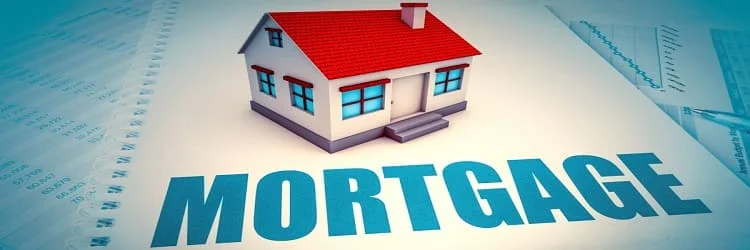The great recession of 2009 that was triggered by abuses in the mortgage industry left the global economy in shambles. And hoping to avoid a repetition in the future, governments and financial institutions rushed to find suitable safeguards and put them in place. The result is an ever-expanding set of regulations for the Mortgage Loan Process that call for stricter rules and harsh penalties for failure to comply with them.
These changes to the Mortgage Process are most visible in the Mortgage Application Process phase of lending. The closing day is when the Transaction is finalized when ownership of the property actually changes hands. And it usually takes just a couple of hours. But the days and weeks leading up to the Mortgage Closing Process are filled with lots of paperwork and many documents changing hands. But you know this. The emphasis here reinforces the importance of communicating all this to the buyer. If you put yourself in their shoes, especially if they're first-time buyers, they've certainly heard from friends and family how complicated the process can be, so even if it's routine to you, the buyer likely needs some "hand-holding." Remember how stressful you're first closing was? With the addition of Covid 19, think of that stress doubled!
Six Steps Of Mortgage Closing To Home Ownership
Well, maybe six, 12, or 8, or more, depending on who you talk to! But no matter how you break it down, there is a process involved, and it goes like this: you've been preapproved, you've found your dream home, made an offer that's been accepted, done all the inspections, and been cleared to close. Now the fun starts. Since the attack of Covid 19, and many people wanting to limit face-to-face contact, the mortgage industry has come up with more and more digital solutions to keep everyone safe. That being said, there will likely be some personal contact, but in the safest way possible. There is a way to significantly reduce the chances of Covid 19 infection that we'll get to later.
Mortgage Pre-Closing Audit, where lenders review the purchase offer and make sure that it is acknowledged. Lenders collect all the borrower information required to review payoff statements, balance due, interest rate, and loan amount. This involves a HUD settlement, which requires approval from lenders and attorneys.
The Mortgage Closing Process starts with a sales contract signed between the property buyer and seller, which is then shared with the closing agent, along with a deposit. The escrow agent accepts the escrow through a written notation on the contract and then begins the closing process with the title order and sends the file to be processed. As soon as the processing starts, legal documents - tax information, loan payoffs, surveys, maintenance fees, details of hazards, and reports, are ordered for a title search.
Title Search the title search examines public records like deeds, mortgages, liens, assessments, divorce settlements, wills, debts owed, and other usual documents that affect the property's title. Title Examination of the property is when the against the property is showcased, and verification of the legal owner is made. This results in a preliminary title report.
Request to Produce. The designated closing agent reviews the lender's instructions and requirements. After the review, they prepare a closing statement and schedule the closing date.
Closing the Transaction, the settlement agent oversees the closing, the seller signs the deed and closing affidavit, the buyer signs the new note for the mortgage, and the old loan is paid off. Additionally, payments are made to the seller, attorneys, real estate agents, and anyone else involved that is owed.
Post-Closing happens after the signing process is complete, the escrow funds are paid to previous owners, lenders, servicers, and the actual closing costs are paid. Then the title and insurance papers are forwarded to the new owner and lender.
Obviously, these transactions sound like a lot of face time from a lot of different people! Some of the risks of infection can be avoided by conducting the closing outdoors or in a large, well-ventilated space. Neither option is ideal or sometimes even possible!
But, the entire mortgage process can safely be Outsourced! That's right, thanks to Covid 19, Mortgage Process Outsourcing is more refined and secure than ever before! And in fact, in some states, the entire mortgage process is entirely digital. This revolution in lending came about because of tragic circumstances, but it's probably here to stay. Lenders and brokers now have a new tool that helps brokers and clients stay safer and speeds and reduces the cost of the process.
Mortgage Closing - From Start to Finish.
Although all the steps in the mortgage process are essential, some are more important than the rest. Make sure that everyone understands this.
There is the Mortgage Pre-Closing Audit, where lenders review the purchase offer and acknowledge it. Lenders collect all the borrower information required to review payoff statements, balance due, interest rate, and loan amount. This involves a HUD settlement, which requires approval from lenders and attorneys.
Then there is the Post-Closing that happens after the signing process is complete, the escrow funds are paid to previous owners, lenders, servicers, and the actual closing costs are paid. Then the title and insurance papers are forwarded to the new owner and lender.
Mortgage Closing. Keep Everyone in The Loop.
As long as everyone is on the same page, closings have a good shot at being the successful conclusion everyone is working towards. And don't forget the opportunity to outsource with a reputable Mortgage Outsourcing Partner.

Leave A Reply